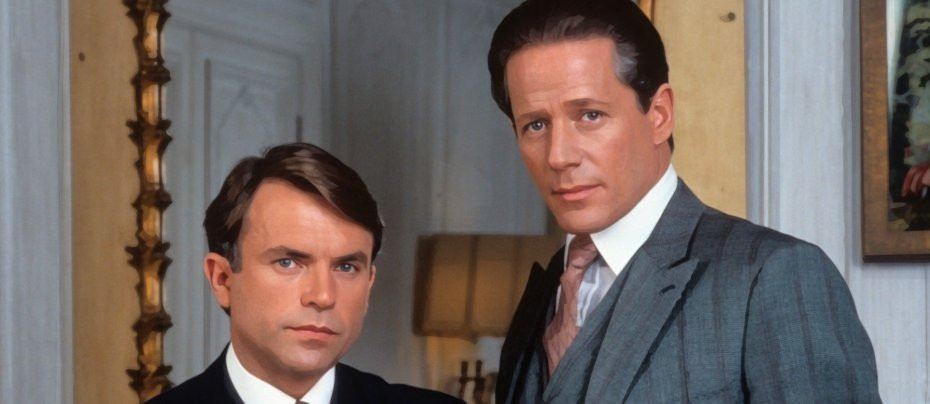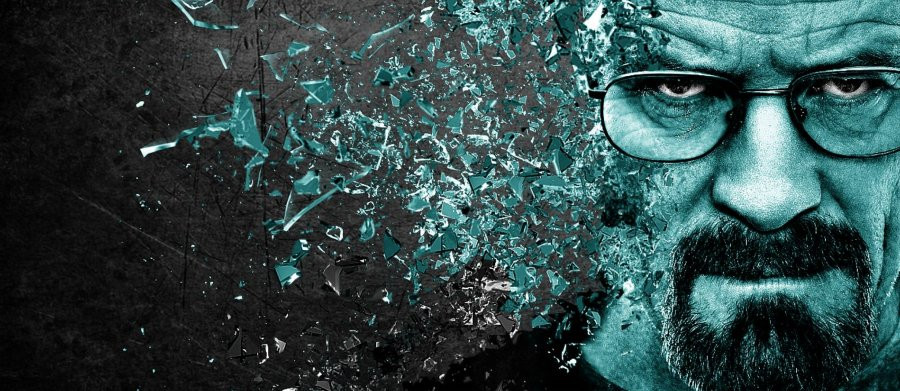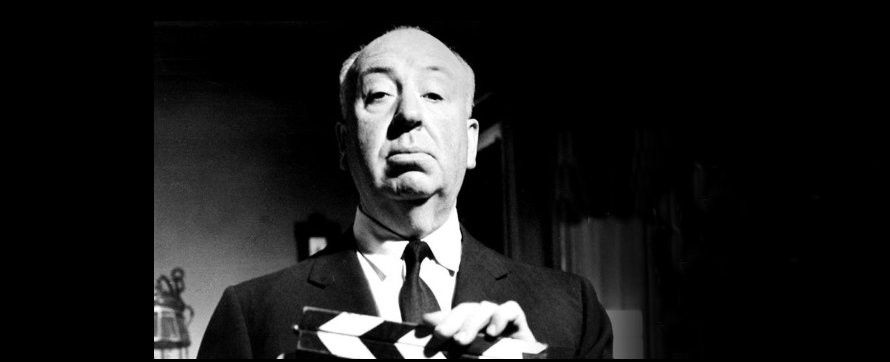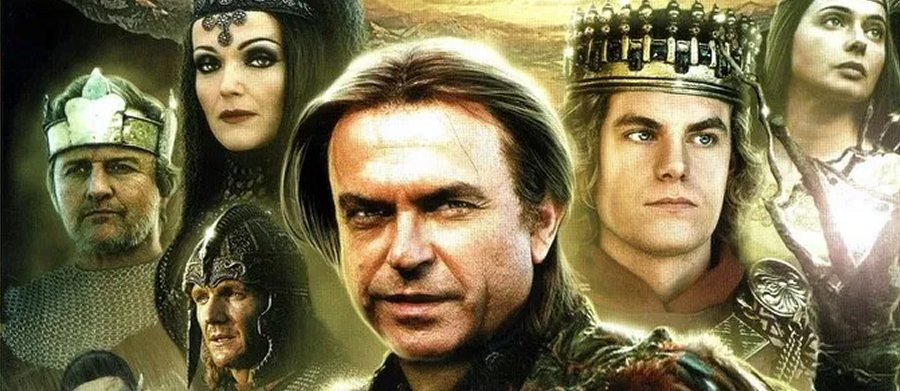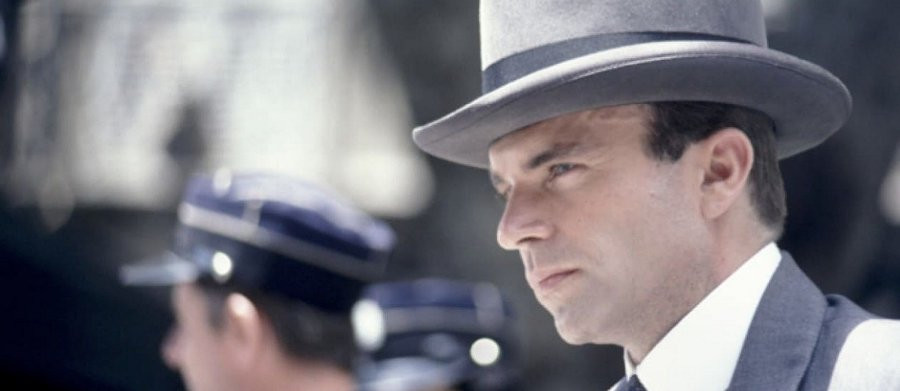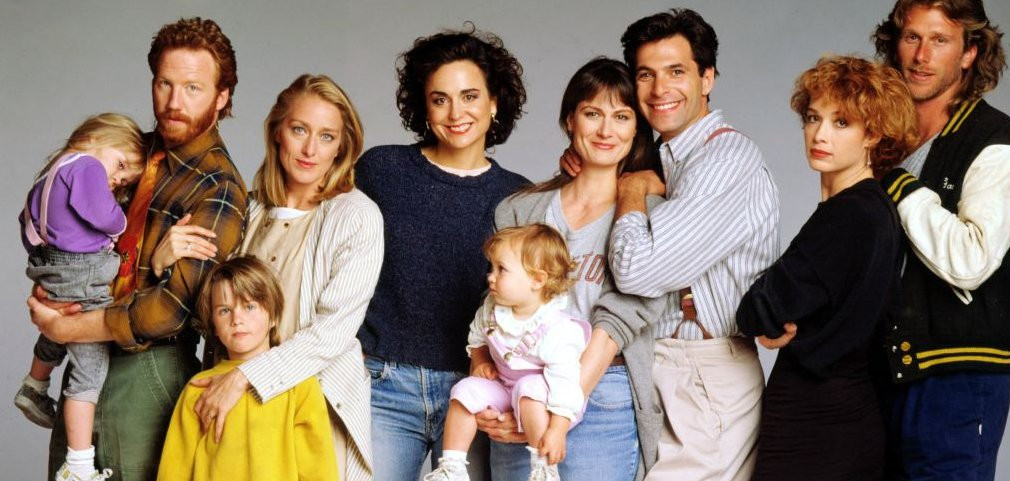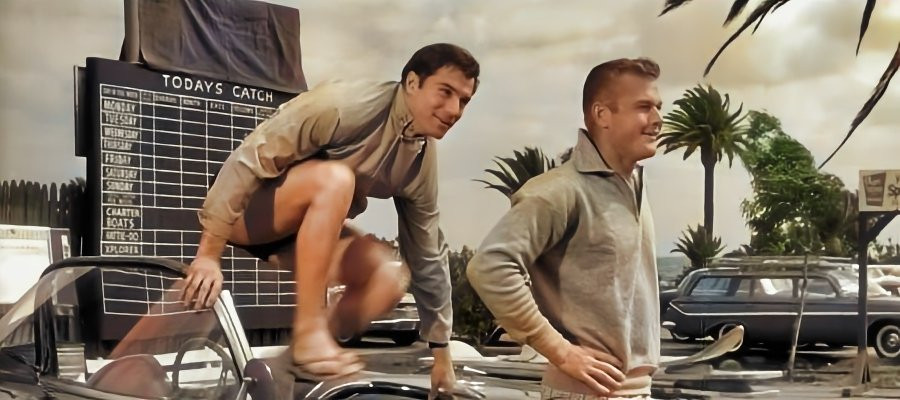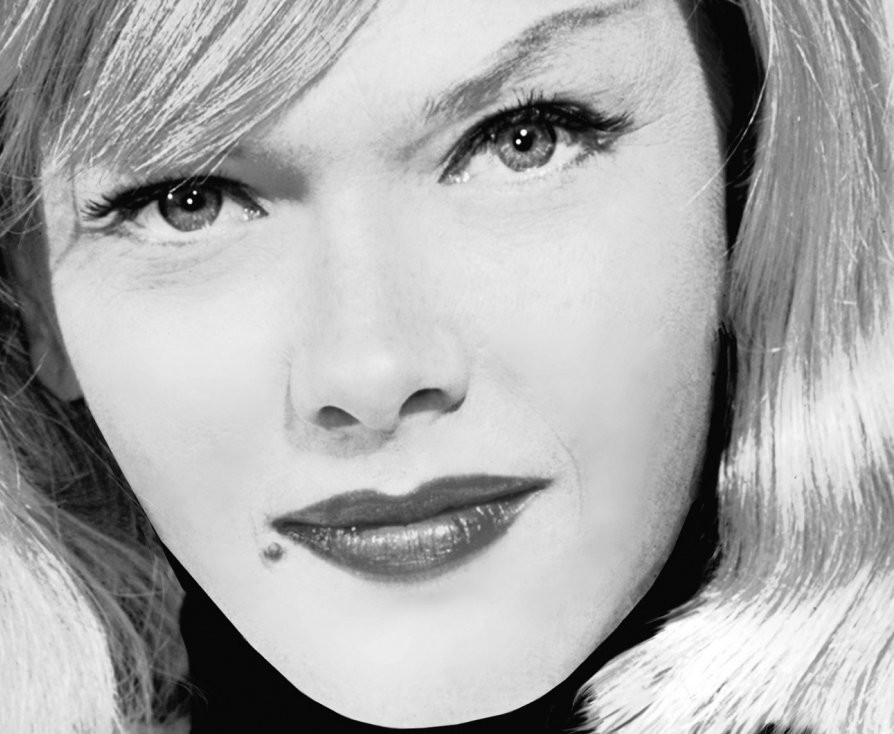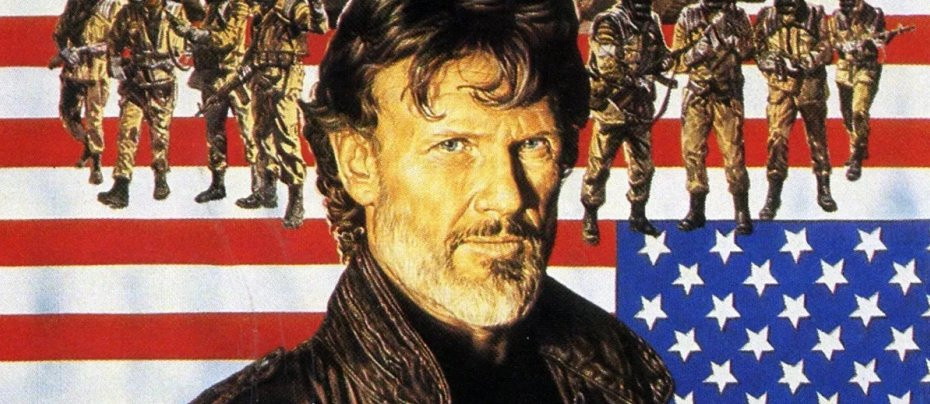
Amerika
1987 - United StatesReview by John Winterson Richards
By one of those strange coincidences that seem to happen a lot, your reviewer was a few episodes into watching Amerika, a largely forgotten miniseries starring Kris Kristofferson, when the news of his passing came through. Kristofferson was one of those people who made everyone else envious because they seem to excel at everything they try. He was a Rhodes Scholar, a natural athlete (a boxing Blue at Oxford who played rugby for his College), a literally high flying professional soldier in every sense (a Captain, a Ranger, and a qualified helicopter pilot) before "dropping out" in the Sixties, one of the most talented songwriters of a talented generation as well as a distinctive singer, a member of the Highwaymen "supergroup," and, the point here, a very successful actor. If it is fair to say that his acting relied more on his presence than on technical skill, it was still enough for him to dominate scenes even with first class players. In Amerika, he only has to stand motionless, like a statue of an older and grizzled version of Jesus, to make a point.
Given his hippie-ish politics, Amerika seems a very strange choice for him. It owes its inception to complaints about The Day After, a politically influential and commercially successful television film, written by the talented Edward Hume, which showed the grim aftermath of a nuclear war: it was widely perceived as an attack on the doctrine of nuclear deterrence, a very important issue as the Cold War was entering its final phase. The conservative commentator, past Nixon speechwriter, and actor Ben Stein ("Bueller... Bueller... Bueller...") suggested that ABC, the network that made The Day After, should show the other side by dramatising the aftermath of a Soviet takeover of the United States. In a twist that would be unimaginable today, the network agreed that this was only fair. Although Hollywood was even then almost as solidly on one side of the political spectrum as today, the big networks, and, more importantly, the big advertising agencies who were still very close to them, never forgot, with Reagan in the White House, that more than fifty percent of their target market did not share their politics.
Stein apparently got a quitclaim fee for his idea and the project was put in the hands of Donald Wrye, a writer-director whose most notable work was an ice-skating film. Wrye both wrote and directed what became Amerika, as well as serving as the "showrunner" Executive Producer.
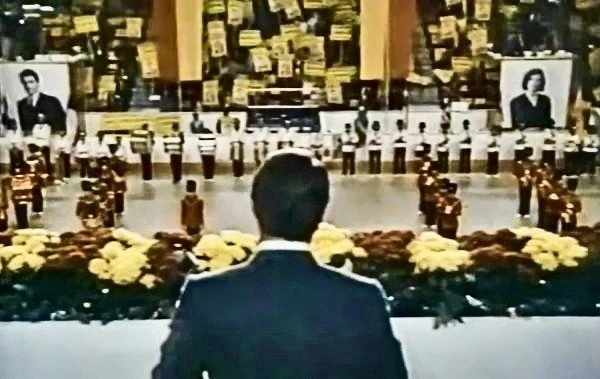
This centralisation of power on the conceptual side of the production, ironically reminiscent of the Soviet system it critiques, may have been a mistake. Rejecting the auteur theory so beloved of cinephiles, television has traditionally preferred a system of checks and balances between Writer, Director, and Producer, and Amerika is a good lesson in why this is desirable. It has a classic case of what might be termed "Writer-Director-Producer Syndrome," in that Wrye the Director indulged Wrye the Writer and Wrye the Producer indulged Wrye the Director by keeping too much of what otherwise might have been cut. The whole thing is far too slow. Speeches, scenes, and sequences that are often very impressive in themselves are allowed to go on far too long. The project's fourteen hours' running time could have been halved without great loss.
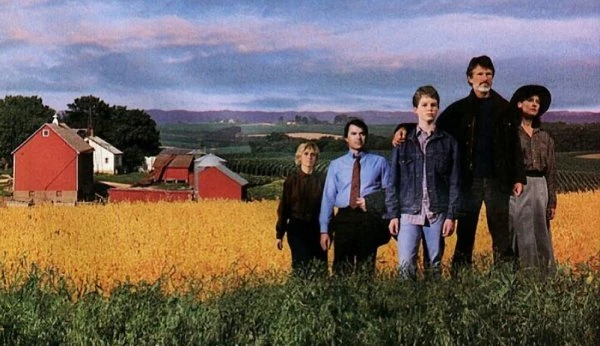
Several characters and subplots are superfluous. While the political drama is compelling, most of the "human interest angle" comes across as contrived. It is increasingly absurd that events with national and global repercussions come down to the relationships within and between two families in a small Nebraska town, where everything seems to happen. This is only the most obvious of a number of absurdities in the plotting.
These dramatic failures were part of the reason why Amerika was not the huge ratings success The Day After had been: while Amerika was not a commercial failure, it did not sell so well abroad and audiences dropped off as it went on. There may also have been a political aspect to this. Some on the Left did not like being reminded that the Cold War and the totalitarian rule of the Soviet bloc, were real. Meanwhile, those on the other side, the more obvious target market, were disappointed not to get a gung-ho flag-waver along the lines of John Milius' popular feature film Red Dawn, complete with good looking American patriots killing sadistic Commies by the dozen.
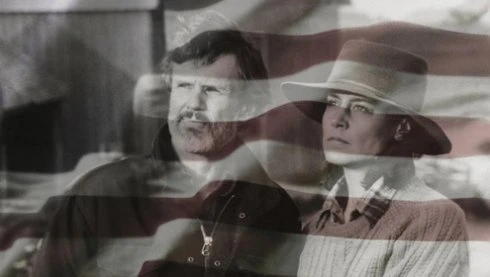
What they got was a very intelligent, well researched, balanced, and generally credible study of life in a Soviet satellite state. A novelization explains how the Soviets took over the United States, but this is a review of the television show alone, and that just jumps right in, ten years later, by showing the consequences. This actually has far more dramatic impact. The first two episodes are very good at evoking the sense of hopelessness following ten years of expropriation, rationing, bureaucracy, indoctrination, and propaganda. However, they are as depressing as they are realistic, which might explain the ratings drop. As far as we see on screen, it is implied that America did not succumb to a Red Dawn style invasion, which would indeed have been extremely unlikely, but rather was subverted, there being no real moral will to resist some sort of coup d'etat, which seems far more believable.
The actual plot as it plays out is less credible and interesting than the "set up" situation, even if the script deserves huge credit for not going the obvious way with the ending. While we are left with hints of hope, history is clear that spontaneous uprisings against organised formations of trained professional soldiers are rare and never successful beyond the initial surprise.
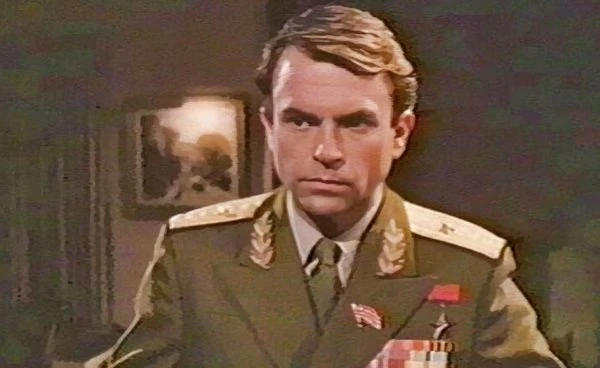
Neither are our heroes particularly compelling. The Kristofferson character is more interested in seeing his children than leading a coherent Resistance. The most sympathetic characters are actually the senior Soviet advisers, played by those fine actors Armin Mueller-Stahl and Sam Neill - not his first time playing a Russian or his last - while miniseries veteran Robert Urich brings a nice ambiguity to a collaborator who is trying to convince himself that his collaboration really will help the people about whom he cares.
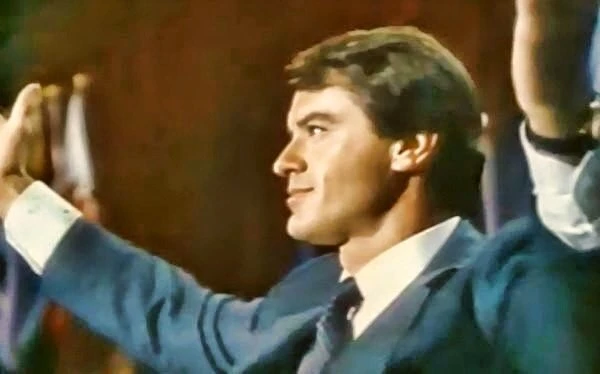
Cindy Pickett (St Elsewhere), rising above a poorly written role as his wife, makes one wonder why she is not a bigger star. Ford Rainey, Christine Lahti, and Richard Bradford look like authentic Midwesterners as the Kristofferson character's family, while Wendy Hughes goes completely Lady MacBeth as his wife. Reiner Schone (Return to Treasure Island), in real life a refugee from Marxist East Germany, is an unambiguous villain as the East German commander of the local Soviet bloc garrison, who, in a clever touch, operate under the legal authority of United Nations "peacekeepers."
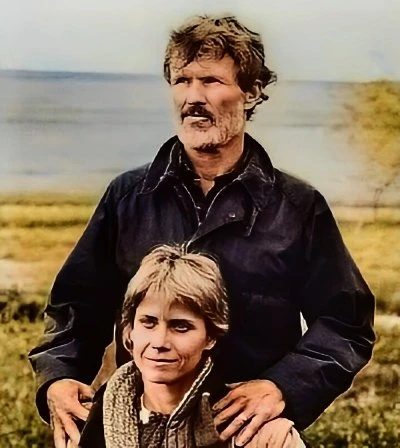
The script is full of such interesting ideas and some of the dialogue is unusually thought provoking for a network miniseries. The problem is that none of this really goes anywhere. It is all strangely dissatisfying, especially since it was obviously a very expensive production. The impressive orchestral score by Basil Poledouris (Red Dawn) hints at his later work on Lonesome Dove, but, unlike that classic, what we see on screen does not deliver the emotional high points the music seeks to suggest. Yet watching in September, 2024, when the risk of a successful foreign conquest of the United States is even less than it was in 1987, Amerika still has important things to say about how freedom and democracy are not to be taken for granted.
Seen this show? How do you rate it?
Seen this show? How do you rate it?
Published on October 10th, 2024. Written by John Winterson Richards for Television Heaven.



